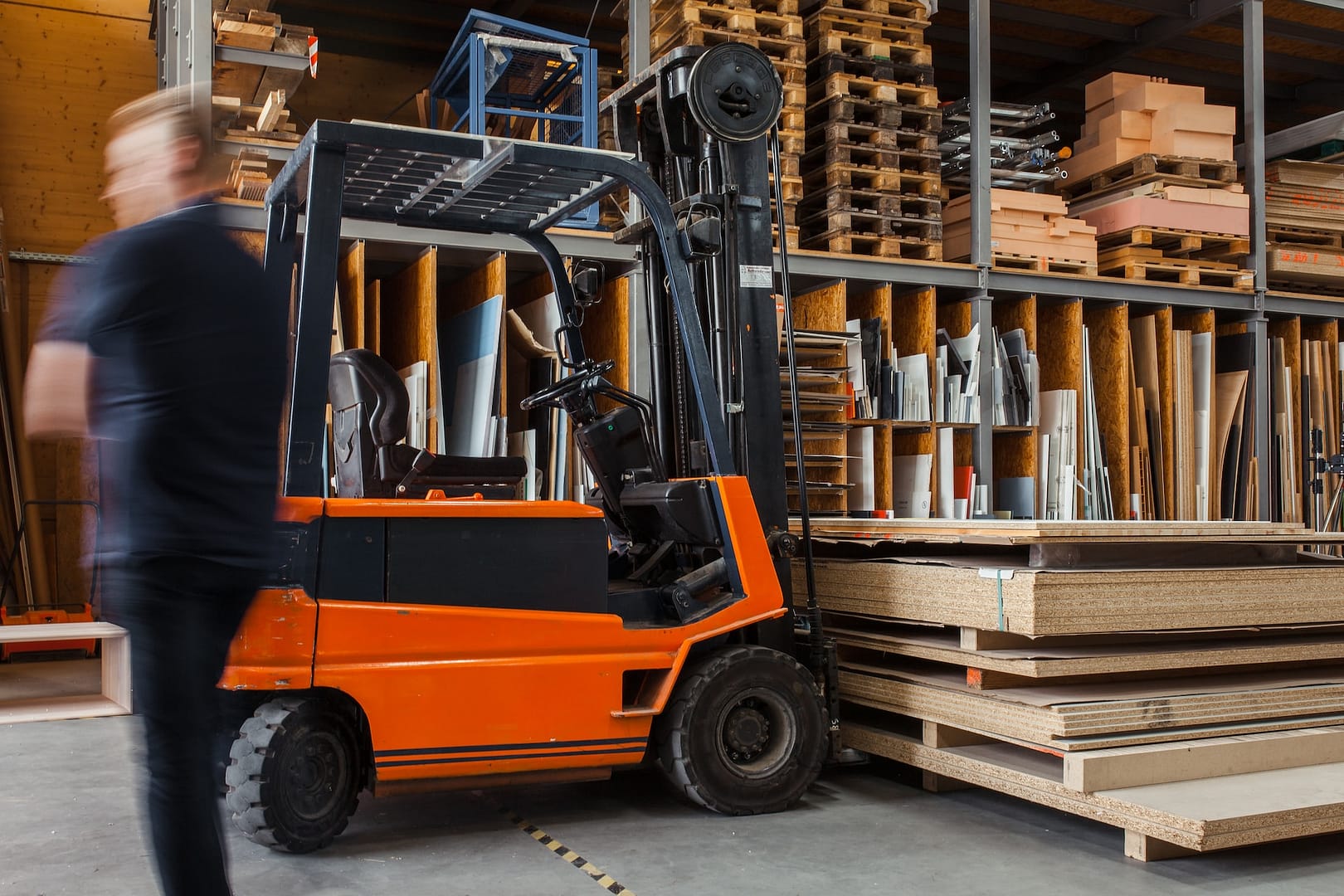The world of logistics in the United Kingdom is a bustling and integral part of the nation’s economy. It’s the backbone that keeps goods flowing smoothly, from manufacturer to consumer, and from port to store shelves. However, beneath this seemingly seamless operation lies a web of challenges and dangers that those working in logistics must navigate daily. In this article, we will explore the various dangers of working in logistics in the UK, the top risks involved, and the measures taken to address them. We will also explore how to get started on your accident at work claim.
Challenges of Logistics in the UK
Logistics in the UK faces a unique set of challenges that make it a demanding industry for those who work within it. These challenges stem from a combination of geographic factors, economic conditions, and the ever-evolving landscape of global trade.
Geographical Complexities
The UK’s geographic location, as an island nation, presents both advantages and challenges for logistics. On the positive side, its proximity to Europe has historically made it a key player in international trade. However, the reliance on sea transport also introduces vulnerabilities. Ports like Dover, which handle a substantial portion of the UK’s trade with the European Union, can experience congestion, especially during peak periods or disruptions like the recent Brexit-related changes.
Traffic Congestion
One of the most visible challenges for logistics professionals in the UK is traffic congestion. Urban areas, particularly London, are notorious for their gridlock, which can significantly impact delivery schedules. Inefficient road infrastructure, compounded by a growing population and increased online shopping, exacerbates the issue.
Fluctuating Fuel Costs
The logistics industry is heavily reliant on fuel for transportation. Fluctuations in fuel prices can have a profound impact on operational costs. Sudden increases in fuel costs can strain profit margins and force logistics companies to pass on the added expense to consumers.
Top Risks in Logistics
While challenges are an inherent part of the logistics landscape, it’s essential to recognize the specific risks that can have severe consequences for those working in the industry. These risks can range from safety concerns to regulatory issues.
Workplace Injuries
Logistics is a physically demanding field, with employees often required to handle heavy loads, operate machinery, and work in various weather conditions. As a result, workplace injuries are a significant concern. Common injuries include back strains, slips and falls, and machinery accidents.
Supply Chain Disruptions
The COVID-19 pandemic brought to light the vulnerability of global supply chains. Logistics professionals in the UK faced numerous challenges, from border closures to sudden shifts in demand for essential goods. These disruptions can cause delays, increased costs, and supply shortages.
Regulatory Compliance
The logistics industry is subject to a wide range of regulations and compliance standards. This includes everything from safety regulations for transporting hazardous materials to customs and trade compliance. Navigating this regulatory landscape can be complex and costly, with non-compliance carrying legal and financial consequences.
Cybersecurity Threats
In an increasingly digital world, logistics companies rely heavily on technology for managing operations and tracking shipments. This dependence on technology opens the door to cybersecurity threats. Hackers targeting logistics systems can disrupt operations, compromise sensitive data, and cause financial losses.
Safety Measures and Mitigation Strategies
In the face of these dangers and risks, the logistics industry in the UK takes proactive measures to ensure the safety of its workforce and the smooth flow of goods.
Safety Training and Equipment
To address workplace injuries, logistics companies prioritise safety training for their employees. This includes proper lifting techniques, machinery operation training, and awareness of potential hazards. Personal protective equipment (PPE), such as helmets and safety vests, is also standard practice.
Technology and Data Analytics
In response to supply chain disruptions, logistics companies have embraced technology and data analytics to improve forecasting and risk management. Advanced software solutions help identify potential disruptions early and allow for proactive mitigation strategies.
Regulatory Compliance Teams
Given the complexity of regulatory compliance, many logistics companies in the UK establish dedicated teams or hire experts to ensure adherence to all applicable regulations. This helps prevent legal issues and fines while ensuring the smooth flow of goods across borders.
Cybersecurity Measures
To safeguard against cybersecurity threats, logistics companies invest in robust cybersecurity measures. This includes firewalls, intrusion detection systems, and employee training to recognise and report potential threats.

Making an Accident at Work Claim
Despite the best safety measures in place, accidents can still happen in the logistics industry. In such cases, workers have the right to make an accident at work claim. This process allows them to seek compensation for injuries or losses incurred on the job. Here are the steps typically involved in making an accident at work claim in the UK:
Report the Accident
The first step is to report the accident to your employer or supervisor as soon as possible. This documentation is crucial for your claim.
Seek Medical Attention
Ensure you receive appropriate medical treatment for your injuries. This not only helps with your recovery but also provides a medical record of your injuries.
Gather Evidence
Collect evidence related to the accident, including photographs, witness statements, and any relevant documents.
Inform Your Union or Representative
If you are a member of a trade union, inform them about the accident. They can provide guidance and support throughout the claims process.
Consult National Claims
It’s best to get in touch with National Claims, where we specialise in workplace accident claims. Our claims specialists assess the validity of your claim and guide you through the claims process.
Negotiation and Settlement
We will negotiate with the responsible party, typically your employer’s insurance company, to reach a fair settlement. If a settlement cannot be reached, your case may go to court.
Compensation
If successful, you will receive compensation for your injuries, medical expenses, loss of earnings, and other related costs.
Conclusion
In conclusion, the logistics industry in the United Kingdom is a complex and challenging field that plays a vital role in the nation’s economy. While it presents dangers and risks, from workplace injuries to supply chain disruptions and regulatory compliance, the industry has adapted and implemented measures to mitigate these challenges. Through a combination of safety training, technology adoption, regulatory compliance, and cybersecurity measures, the UK’s logistics professionals continue to keep goods flowing efficiently and safely, demonstrating their unwavering commitment to this critical industry.
Additionally, workers have the option to make accident at work claims to seek compensation in case of injuries, ensuring their rights are protected. The logistics industry in the UK is a testament to the resilience and dedication of those who work within it, ensuring that products reach their intended destinations, even in the face of adversity.
Contact us now to start your claim for your accident at work.
Click below to see why we are one of the most trusted claims management companies in the UK.

We’re proud of our excellent customer reviews
We thrive on delivering exceptional service and ensuring our clients’ satisfaction. Don’t just take our word for it. Check out some of our independent reviews to see what our clients have to say.
Excellent

This firm is excellent, they sorted out my car pay out and injury claim very fast, they always communicate with you all the time.

My accident case was dealt with confidence and with great result of the outcome, especially James kept me informed all the time.

I was very impressed at the way my inquiry was treated. I was listened to attentively and everything I needed to know was explained to me.






